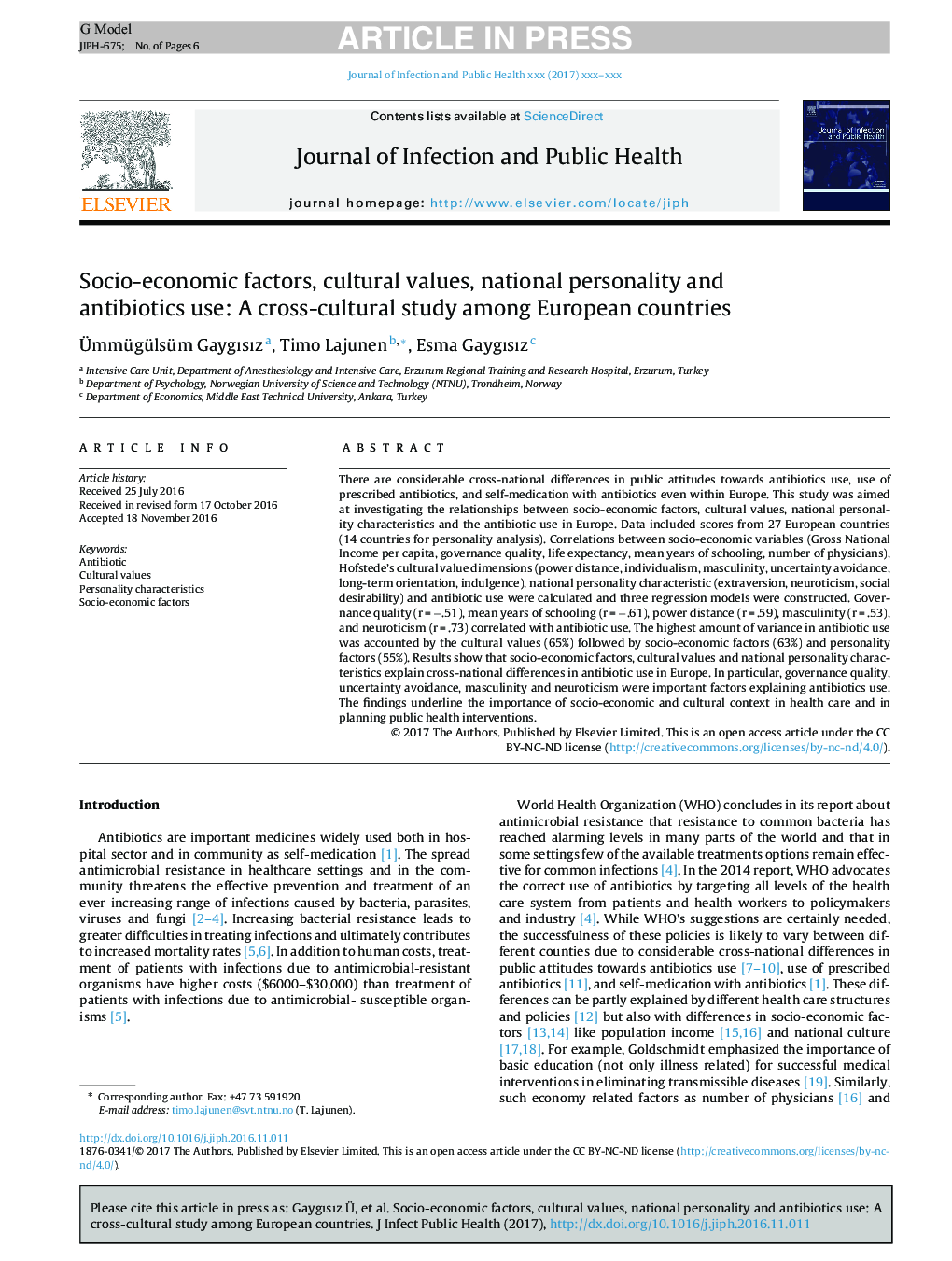| Article ID | Journal | Published Year | Pages | File Type |
|---|---|---|---|---|
| 8746908 | Journal of Infection and Public Health | 2017 | 6 Pages |
Abstract
There are considerable cross-national differences in public attitudes towards antibiotics use, use of prescribed antibiotics, and self-medication with antibiotics even within Europe. This study was aimed at investigating the relationships between socio-economic factors, cultural values, national personality characteristics and the antibiotic use in Europe. Data included scores from 27 European countries (14 countries for personality analysis). Correlations between socio-economic variables (Gross National Income per capita, governance quality, life expectancy, mean years of schooling, number of physicians), Hofstede's cultural value dimensions (power distance, individualism, masculinity, uncertainty avoidance, long-term orientation, indulgence), national personality characteristic (extraversion, neuroticism, social desirability) and antibiotic use were calculated and three regression models were constructed. Governance quality (r = â.51), mean years of schooling (r = â.61), power distance (r = .59), masculinity (r = .53), and neuroticism (r = .73) correlated with antibiotic use. The highest amount of variance in antibiotic use was accounted by the cultural values (65%) followed by socio-economic factors (63%) and personality factors (55%). Results show that socio-economic factors, cultural values and national personality characteristics explain cross-national differences in antibiotic use in Europe. In particular, governance quality, uncertainty avoidance, masculinity and neuroticism were important factors explaining antibiotics use. The findings underline the importance of socio-economic and cultural context in health care and in planning public health interventions.
Related Topics
Health Sciences
Medicine and Dentistry
Infectious Diseases
Authors
Ãmmügülsüm Gaygısız, Timo Lajunen, Esma Gaygısız,
